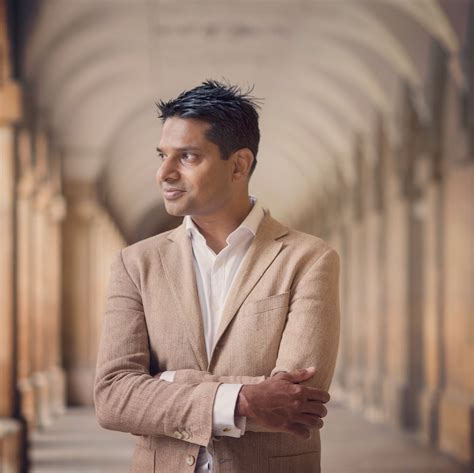A Quote by Saint Basil
To Whom does our God say, 'in our image' (Gen. 1:26), to whom if it is not to Him who is 'the brightness of His glory and the express image of His Person' (Heb. 1:3), 'the image of the invisible God' (Col. 1:15)? It is then to His living image, to Him Who has said 'I and My Father are one' (Jn. 10:30), 'He who has seen Me has seen the Father' (Jn. 14:9), that God says, 'Let us make man in our image'.
Related Quotes
There is no God separate from you, no God higher than you, the real "you." All the gods are little beings to you, all the ideas of God and Father in heaven are but your own reflection. God Himself is your image. “God created man after His own image." That is wrong. Man creates God after his own image. That is right. Throughout the universe we are creating gods after our own image. We create the god and fall down at his feet and worship him; and when this dream comes, we love it !
When our Lord says, 'I have not spoken of Myself' (Jn. 12:49), and again, 'As the Father said to Me, so I speak' (Jn. 12:50), and 'The word which you hear is not mine, but the Father's Who sent Me' (Jn. 14:24), and in another place, 'As the Father commanded Me, even so I do' (Jn. 14:31), it is not because He lacks deliberate purpose or power of initiative, nor yet because He has to wait for the preconcerted key-note, that He employs language of this kind. His object is to make it plain that His own will is connected in indissoluble union with the Father.
'Go to My brethren, and say unto them, I ascend unto My Father, and your Father, and to My God, and your God' (Jn. 20:!7). He is our Father by grace through the Spirit of adoption (Rom. 8:15), but His Father by nature on account of His divinity. Similarly, He is our God as the creator of our human nature, but His God by reason of the dispensation whereby He became man. He made these distinctions so that we might understand the difference.
God reproduces and lives out His image in millions of ordinary people like us. It is a supreme mystery. We are called to bear that image as a Body because any one of us taken individually would present an incomplete image, one partly false and always distorted, like a single glass chip hacked from a mirror. But collectively, in all our diversity, we can come together as a community of believers to restore the image of God in the world.
God never gives dominion to any creature which has not received his image. His image is love. Other things belong to God; but God is love. No creature that has not love will be allowed to have a permanent empire. The Father of mercy will not put the reigns of government into a hand that has no heart. Dominion is a very solemn thing; it may oppress, crush, destroy. The Father must have a guarantee for its gentleness. What guarantee can there be but his image - the possession of a nature tender as the Divine?
Why pray? Evidently, God likes to be asked. God certainly does not need our wisdom or our knowledge, nor even the information contained in our prayers ("your Father knows what you need before you ask him"). But by inviting us into the partnership of creation, God also invites us into relationship. God is love, said the apostle John. God does not merely have love or feel love. God is love and cannot not love. As such, God yearns for relationship with the creatures made in his image.
God cannot be represented by an image. We ought not to think that the Godhead is like unto gold, or silver, or stone, graven by art and man's device. We wrong God, and put an affront upon him, if we think so. God honoured man in making his soul after his own likeness; but man dishonours God if he makes him after the likeness of his body. The Godhead is spiritual, infinite, immaterial, incomprehensible, and therefore it is a very false and unjust conception which an image gives us of God.
There's an old saying that God made us in His image, and we've been trying to return the favor ever since. People often view God in a human image. This God changes His mind, gets upset, answers some prayers but not others, loves some people but not others. But even with that limited image, if we pray sincerely, we'll eventually realize that God is changeless. He's the same all the time because He's not in time-time is in Him.








































